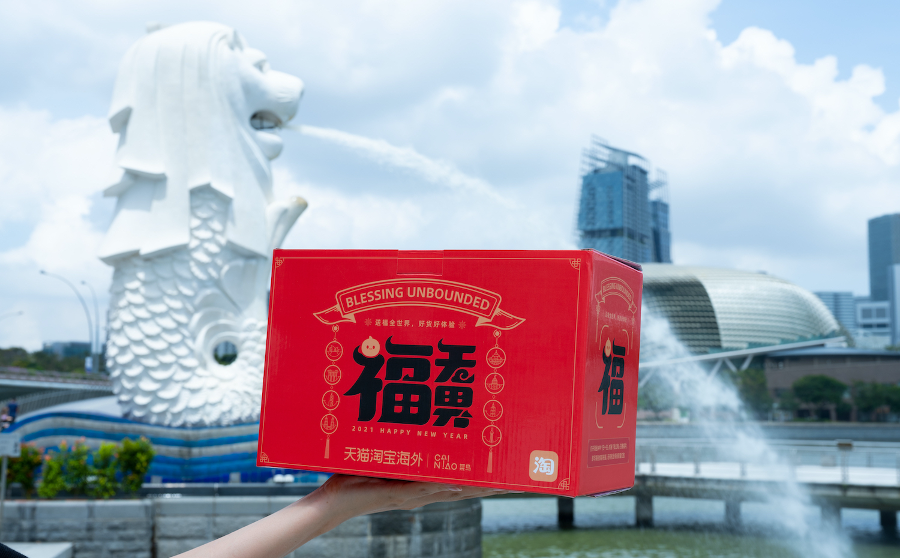
For the first time ever, Wang Haiyu won’t be spending Chinese New Year with family.
Wang, a 34-year old marketer based in Hangzhou, had hoped to return to his home province, Heilongjiang, but the region’s recently seen a spike in coronavirus infections. He joins those sacrificing precious time with loved ones this year, following the government’s guidance for people to stay put in their place of work to help curb the virus.
The CNY period is typically a busy travel season. In fact, it is the largest annual human migration on the planet: China normally sees about three billion trips over the 40-day holiday period. This year, only some 1.15 billion journeys are expected to be made – 61% less than in 2019 and 22% less than last year – according to the Ministry of Transport’s estimates.
“It’s been a very different experience. Our family doesn’t always celebrate at home – sometimes we travel to other places – but we’ve always spent this time together,” Wang said. Breaking with tradition hasn’t been easy, but he tries to bridge the distance by video-calling his parents and ordering them gifts through Tmall, Alibaba’s B2C online marketplace.

People Staying Put, Parcels Still Moving
Separated families, like the Wangs, have fueled a surge in e-commerce gifting ahead of the Chinese New Year holiday. On Feb. 4, when preparations for CNY traditionally begin, consumer searches for “gifts for parents” on Tmall jumped fourfold from the daily average. Popular purchases ranged from health-test appointments for seniors and noodle-making machines to electric toothbrushes and robotic vacuums.
To support this spike in delivery demand, Alibaba’s logistics arm Cainiao Network pledged to maintain operations over the period across more than 200 cities. Close to 50,000 of its Cainiao Post stations nationwide will also stay open for consumers to collect their parcels, including through contactless technologies such as self-serve pick-up machines and driverless carts. Some stations also offer community services, like grocery group-buying and pet-sitting.
Several other platforms across Alibaba’s ecosystem also plan to keep services up and running. Department store chain Intime said it will be business as usual across its 65 branches in 35 cities, with nearly 80% of its stores continuing to offer delivery services in as fast as an hour. Per Alibaba’s C2C e-commerce site Taobao, more than 100,000 merchants on the platform will stay open for business, shipping out orders within 48 hours of payment. Online grocery platform Tmall Supermarket will continue delivering to 300 cities. Alibaba’s New Retail-powered supermarket Freshippo also said 260 of its stores across the country will remain open throughout the holiday.

A New Kind of New Year Feasting
Per Freshippo, apart from a marked rise in sales of Chinese New Year staple foods, like dumplings, easy-to-cook semi-prepared meals were especially popular during the supermarket’s CNY campaign – sales quadrupled compared to the same period last year. It’s also made adaptions to its food offerings as more people are “celebrating in place.” This includes more regional specialties, so people can find a taste of home wherever they are, whether it’s Suzhou’s eight-treasures rice pudding or Shaanxi’s dried persimmons. For the first time, the supermarket also introduced a smaller-sized CNY meal set for four to six people that has been popular among consumers.
RT-Mart, one of China’s largest hypermarket chains, released pre-cooked dishes that consumers can simply heat up to eat, from Cantonese braised pork belly with abalone to Beijing-style lamb spine hot pot.
Restaurants are also expecting a boom in online deliveries. According to Ele.me’s latest figures, holiday meal offers have surged nearly threefold from last year, and the app saw a 260% rise in the number of stores serving up festive meals for delivery. With many people scaling down their celebrations into smaller affairs, merchants have dished out new menu ideas for CNY’s Eve. Chinese restaurant chain Nanjing Impressions, for example, used to focus on dinners catering to parties of about 8-12 people. This year, however, they will deliver meal sets via Ele.me aimed at nuclear families of about 2-4 people for the first time.
Restaurant owners like Xiao Shineng are getting creative. Originally from Chongqing, Xiao owns a restaurant in Huzhou, China, where he has lived for 18 years. The restaurant was among the first in town to try delivering through Ele.me. Today, online deliveries represent about 60% of his business. Xiao’s daughter lately has been using the app’s livestreaming tool to broadcast him cooking CNY dishes, giving their customers a peek of the food and a chance to interact with the people behind the family restaurant.
From Marriott to Shangri-la, hotels are offering CNY dinner sets on Fliggy, Alibaba Group’s travel-services platform, where consumers can choose to pick up in person, have them delivered or for the chef to prepare the food for them in their homes. Since Feb. 4, a few chefs have also taken to livestreaming on Fliggy to interact with consumers and share cooking tips.

Technology Transforming CNY
It wouldn’t be Chinese New Year without red packets: New gamified features on Taobao and Tmall invite consumers to browse and interact with brands to win red packets, cash allowances that can be used to shop on the platforms.
Livestreamers are also joining in the fun, with close to 10,000 influencers on Alibaba’s Taobao Live platform – including Austin Li and Viya Huang – giving away red packets in their livestreams. When Taobao users tune into CCTV’s Spring Festival Gala program on New Year’s Eve, they can also join the red-packet giveaway and win a chance to have everything in their virtual shopping carts paid for and “cleared.”
On Feb. 1, Alipay also launched the newest edition of the e-wallet’s CNY interactive feature, Five Fortune Card Collection. The augmented reality-enabled feature invites users to search for and scan an auspicious Chinese character. Those who collect five of them can win red packets containing cash rewards. This year, Alipay also introduced a new function for people to write their own Chinese calligraphy within the app, to share with loved ones or print out as CNY decorations. More than 600 million people have participated in the Five Fortune campaign campaign, since its inception six years ago.
When a surge of Covid cases in parts of the country led China to impose strict coronavirus testing requirements ahead of the holiday, Alibaba Group’s healthcare arm Alibaba Health launched a feature within its “Dr. Deer” app to help people find Covid-19 testing locations near them. Users can make appointments, access results and even book “at your doorstep” testing services at home.
For people who need to travel between cities, the company’s maps and navigation service Amap upgraded the app to include the latest Covid-19 policies of each location and smart route recommendations that avoid high-risk epidemic hotspots.
Amap users can also find a festive landing page that brings together deals and recommendations for hotels, food, attractions and transportation. Per Amap’s figures, from mid-January to early February, hotel bookings made on the platform grew by nearly 200% and attraction tickets by 300%, with over 80% of users opting for hotels in nearby locations, including for “staycations” in the same city.
In Beijing, Amap also started piloting a new one-click ride-hailing feature for senior users on its app and its mini-programs on Alipay and Wechat. Users just need to tap one button, without the need to type in their location and destination and let the driver know where they’d like to go. Their trip details can also be shared with friends and family.
Ahead of the holiday, Taobao and Tmall also upgraded their customer-support hotline, “9510211,” for senior users above the age of 60, as part of a push for inclusive technology. When users dial the hotline, they can skip the customer-service chatbot to get instantly connected to human staff who can answer their questions.
Sign up for our newsletter to receive the latest Alibaba updates in your inbox every week.




